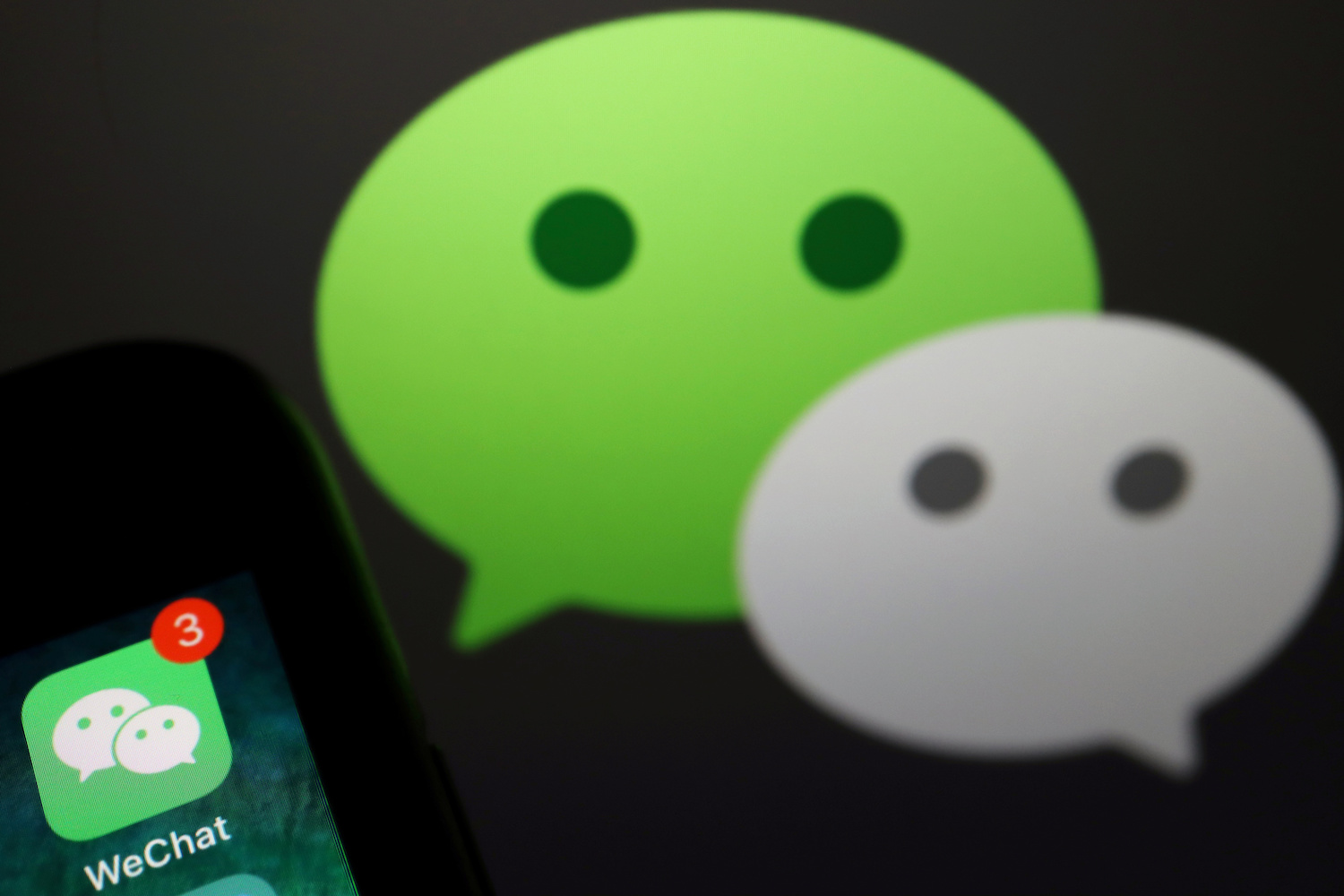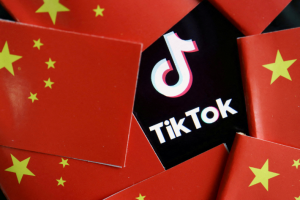(ATF) US President Donald Trump’s executive order to ban transactions between US citizens and WeChat has been challenged in court. One of the Chinese American lawyers who initiated a WeChat user coalition told ATF they filed a lawsuit in a Federal Court in San Francisco on Friday that aims to rescind the president’s executive order.
Keliang (Clay) Zhu, managing partner of DeHeng Law Offices’ Silicon Valley office and one of the initiators of the non-profit US WeChat User Alliance, confirmed that Michael W Bien, co-founding partner of San Francisco-based Rosen Bien Galvan & Grunfeld LLP, will be joining the Alliance’s efforts.
“He will be the lead counsel on the case,” Zhu said.
With over 40 years of litigation experience, Bien is adept at handling complex, large-scale cases spanning multiple jurisdictions, and especially experienced with litigations against constitutional violations. One of his representative cases led to a historic decision by the US Supreme Court on prison overcrowding in 2011.
The lawsuit filed in the Federal Court in San Francisco said: “Neither the Executive Order itself nor the White House provided concrete evidence to support the contention that using WeChat in the United States compromises national security. in issuing the Executive Order, the president acted beyond his authority provided by the International Emergency Economic Powers Act, which precludes the President from “directly or indirectly” regulating personal communications and the international exchange of information”.
In a post on its WeChat channel, the Alliance said that the presidential executive order discriminates against Chinese people and violates provisions in the US Constitution. So, they felt Bien’s legal experience added to the likelihood of them winning the case.
Restraining order
The Alliance is hoping to convince the court to impose a temporary restraining order on Trump’s executive order and force the government to either rescind it or significantly narrow its scope.
If successful, the September deadline the Trump administration has set for a WeChat ban may never be implemented.
The Alliance, which claims to have no connection with Tencent, the operator of WeChat, or any political party or government, is raising funds on its website with a $100,000 goal to cover fees for hiring first-rate lawyers for its first step of filing the case and applying for a temporary restraining order.
It had raised $37,912.99 – more than one-third of its goal – in about 10 days.
On August 6, Trump issued an executive order that prohibits people or entities in the US from conducting any WeChat-related “transactions” with Tencent Holdings and its subsidiaries based on national security concerns.
The prohibition will begin 45 days later, or on September 20, along with another executive order that puts similar restrictions on short-video app TikTok, which is owned by Chinese tech firm ByteDance.
The executive order on WeChat did not specify what types of “transactions” would be prohibited and only said that the Secretary of Commerce would define the transactions 45 days later.
This left industry professionals to come up with various interpretations.
19m users in US, but huge fines possible
Zhu believes the executive order means a complete ban on WeChat in the US because a previous executive order (No. 13873) cross-referenced by the one on WeChat had defined the term “transaction” to include the downloading and use of an app.
The consequences could be dire – if someone chooses to disobey the executive order, they may face a civil fine of $300,000 per violation and jail time, according to the Alliance’s analysis.
While WeChat is a ubiquitous messaging app in China, it is also used by about 19 million people in the US – most of them Chinese Americans who use the app to stay connected with their family and friends in China and some non-Chinese Americans who have Chinese friends or conduct business with Chinese companies.
These people’s lives and work could be severely impacted if WeChat is completely banned.
Tencent did not respond to an Asia Times Financial request for comment.
But a WeChat PR person told ATF: “Nobody seems to know for sure what the executive order means for WeChat.”
She said the Indian government’s ban on WeChat, which started in early July, had only had a “very small” business impact on WeChat so far.
According to Tencent’s second quarter (Q2) financial report released last week, WeChat had 1.2 billion monthly active users globally as of the end of Q2.
Impact on business
Compared with the impact on WeChat’s business in the US, a greater impact brought by Trump’s executive order might be on multinational companies that conduct business in China.
Many analysts believe that the WeChat ban will cause a huge business loss for Apple, as WeChat is currently an irreplaceable app in China, which is Apple’s largest market and accounts for 20% of iPhone sales.
Ming Chi Guo, an analyst specialising in iPhone market research at TF International Securities, said in a note a few days after Trump’s executive order was issued that Apple may be forced to remove WeChat from its App Store globally.
And Guo said that Apple’s annual sales of iPhone around the world could decrease by 30% if WeChat is removed globally from the App Store.
But if the ban only applied to its App Store in the US, iPhone sales may decrease by just 3% to 6%, he said.
A poll by Snowball, a Chinese investor social network, of 189,000 people showed that 99% of them would give up on iPhone if they can’t use WeChat on it. But the Android version of the app would have minimal impact because it can be downloaded directly from WeChat’s website even though Google Play is blocked in China.
The WeChat app has no US app equivalent – it’s a social network and messaging tool, a payment service, a news source, and a host to an array of “mini-apps” by third-party service providers.
Users in China can order groceries, make medical appointments, pay utility bills, purchase wealth management products, book vacations, and hail cabs without ever leaving the app.
Apple, Disney, Ford, Walmart and nearly a dozen other US multinational companies are pushing back against the WeChat ban, saying it could undermine their competitiveness in China, according to a Wall Street Journal report.
When asked by a reporter at a White House press conference last Friday whether he was concerned about the effect the ban could have on iPhone sales, Trump reportedly said: “Whatever,” suggesting he was not bothered by the ramifications.
ByteDance, the parent company of the viral short-video app TikTok, said to have about 100 million users in the US, has announced a plan to file a federal lawsuit against unfair treatment by the US government.
Trump issued another executive order on August 16 targeting TikTok and ByteDance, seeking to unwind ByteDance’s acquisition of Musical.ly in 2017 which eventually merged with TikTok.
That order gives ByteDance 90 days to sell off any assets that enable it to operate TikTok within the US.
























